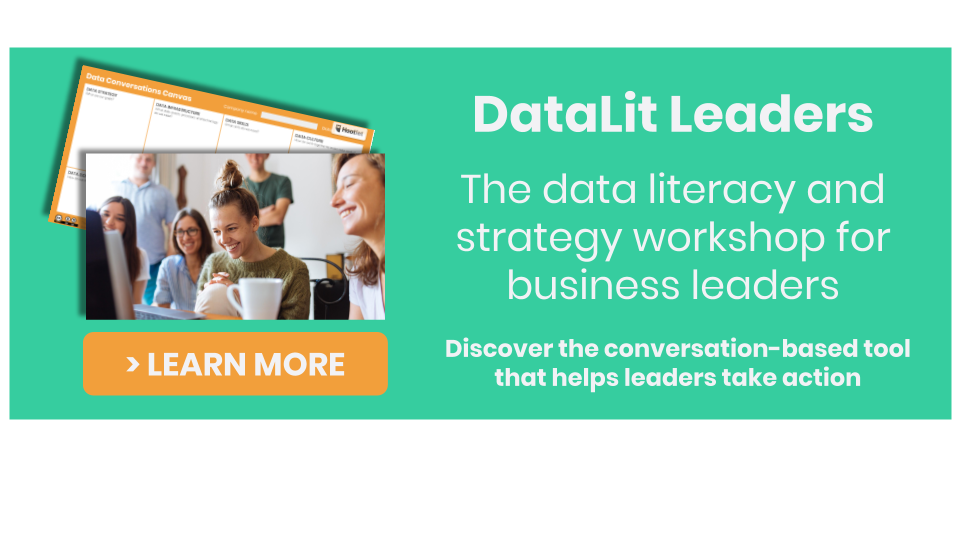Exciting technology attracts headlines but adapting to the changes data is driving means evolving how we work – our mindsets our behaviours. This means considering how to change the culture of your organisation.
“Data culture is a part of our value system. Like eating rice or bread—if you don’t eat it, you miss the day. Ultimately, everyone in the organization has to adopt a mind-set of data culture, but it doesn’t happen overnight.”
Tak Nagumo – Mitsubishi UFJ Research and Consulting
This is a complex area. Culture change like any change is a notoriously challenging domain. According to Mckinsey research two-thirds of change efforts fail. But, just because it’s hard it doesn’t mean it should be ignored. Like digital transformation before it, for data to stick, for it to create value, it takes more than tech. It takes more than hiring in consultants. It takes more than recruiting data scientists. You might need all of that. But you’ll never see a return if the organisation isn’t ready and willing to change.
Build an organisation ready for data

Part of the problem is that, like data literacy, definitions of data culture are often heavily skewed towards technology. Data culture is often conflated with data analytics culture. Whilst technology, such as data analytics, may well be an important part of a company’s toolkit, data culture goes beyond analytics. It’s about the way you create an organisation that helps your people create value from data.
To address data culture you’ll need to start understanding how data might create value for your business. Then start considering what are the ways of working and cultural aspects of your organisation that could help or hinder value creation.
For example, if your product teams have adopted a “just do it” culture based on Agile ways of working, you might want to consider whether that approach will get you into trouble if the team releases a new product feature that uses data in a way deemed unethical or even illegal. This will mean considering what ethics and values you wish to adopt when working with data. Facebook learnt this the hard way. They didn’t break the law. Or their own terms of service. It was the public and media who judged Facebook to have fallen short of the ethical standards and trust people associated with Facebook.
At the same time, a cautious approach to data ethics also needs balancing with the fact that people working with data often need to work iteratively. Leaders need to understand and support the experimental ways that many data specialists adopt.
These examples demonstrate both the complexity and the importance of organisational cultures that support data. The way you work with data, and your goals need to be reflected in the data culture you build. As it is culture that will drive the decisions your people make and the behaviours they exhibit. A culture that focuses on revenues at all cost might, like Facebook, lose the trust of its clients. A culture that is too conservative may not make the rapid progress you need.





